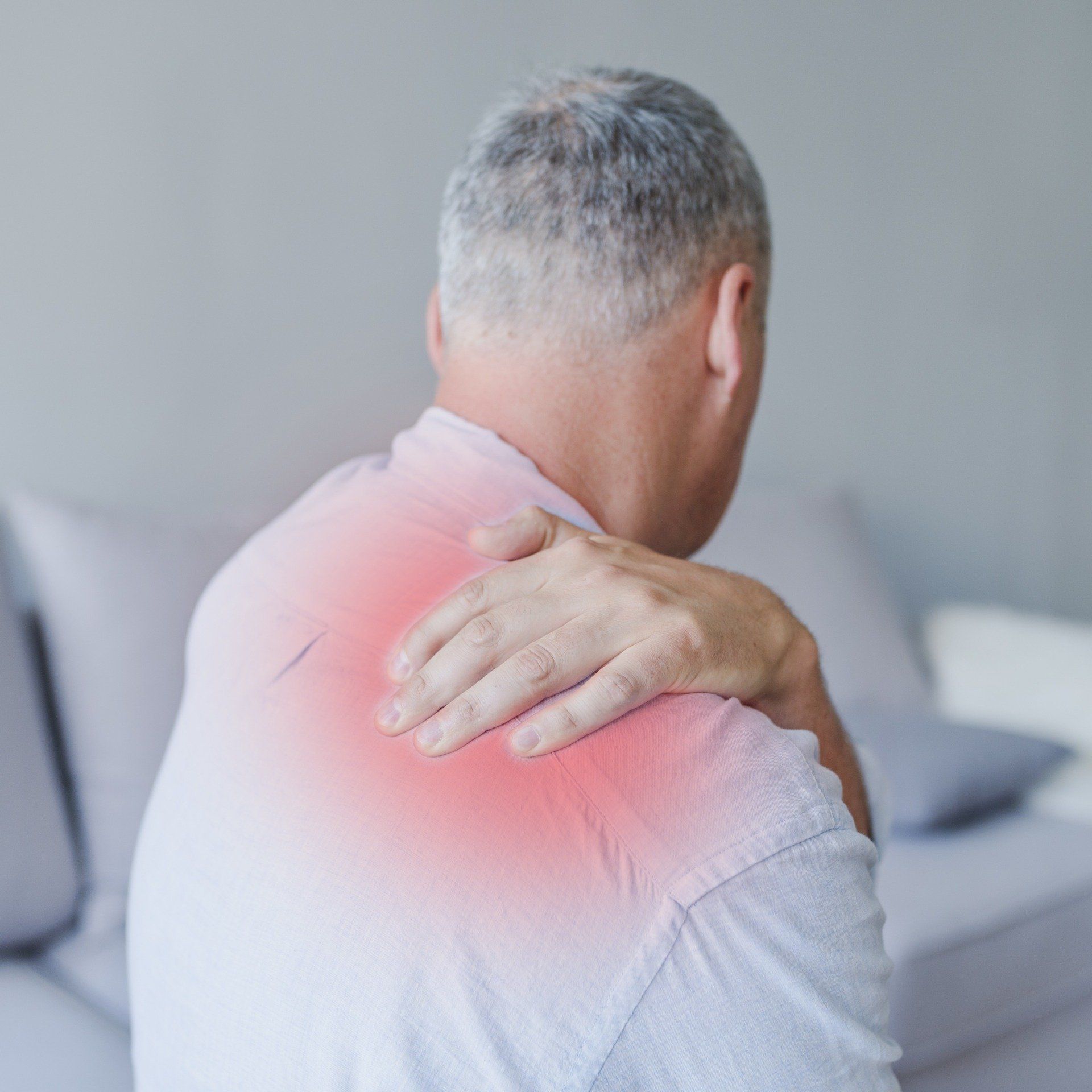Shoulder Arthritis Treatment in Baton Rouge
Shoulder Arthritis Overview
There are two joints within the shoulder and either may be affected by arthritis due to cartilage damage. The acromioclavicular (AC) joint is where the tip of the shoulder blade connects to the clavicle. The glenohumeral (G-H), is the larger, ball-and-socket joint where the humerus joins the scapula.
Arthritis
in either of the joints most commonly develops gradually due to wear and tear over time. This is a condition known as
degenerative arthritis, or osteoarthritis. However, the shoulder joint may also be affected by rheumatoid arthritis, or an injury such as a dislocated shoulder, fracture, or
rotator cuff tear.
Shoulder Arthritis Symptoms
Pain in and around the shoulder joint is the most common complaint associated with shoulder arthritis. This pain tends to worsen as the disease progresses. For many, the discomfort is most notable with carrying or lifting heavy objects or following a workout. Depending on the specific joint affected, the location of the pain may differ. Arthritis in the AC joint, for instance, will likely hurt more at the top of the shoulder, while G-H arthritis will cause more pain at the back of the shoulder.
In addition to pain, patients may also experience stiffness, decreased range of motion and popping, clicking, or grinding sensations within the shoulder.
Risk Factors for Shoulder Arthritis
Shoulder arthritis is not the same for every patient. However, there are some common factors which are known to increase
risk of shoulder arthritis. Here are some of the most common contributors:
- Age -
Shoulder arthritis is most commonly diagnosed in those over the age of 50.
- Genetics - Family history of shoulder arthritis can increase likelihood of its development. So too can other hereditary conditions affecting the joints or bone alignment.
- Trauma - Trauma to the shoulder can be the catalyst that leads to arthritis down the road. This is particularly true for professions that involve frequent heavy lifting or shoulder strain.
- Gender - Women are more likely to develop shoulder arthritis than men. Although, the condition does impact both sexes.
- Steroid Use -
Having used high doses of steroids in the past can increase the risk for development of shoulder arthritis in the future.
Non-Surgical Shoulder Arthritis Treatment
- Ice and/or Heat -
Ice can be applied several times daily to help ease pain in the shoulder. However, some patients prefer heat.
- Pain Relief Medications -
These can include over-the-counter medications such as acetaminophen (Tylenol), ibuprofen, and topical ointments, or prescription strength medications such as Tramadol.
- Injections - Steroid and hyaluronic acid injections can help bring extended relief by reducing inflammation and helping lubricate the joint.
- Physical Therapy -
Physical therapy may help some patients by providing specific stretches and exercises to minimize pain while also strengthening the shoulder and surrounding tissue.
Shoulder Arthritis Surgery
In severe cases of shoulder arthritis, more conservative treatments may not be able to bring sufficient relief. In these cases, pain and loss of function can impact a patient’s quality of life to the point that surgical intervention becomes the best course of action. Typically, one of two procedures is used:
- Arthroscopic Debridement - This procedure is minimally invasive, using small incisions, a camera, and special surgical tools to see and debride, or clean out, the shoulder joint. It is used on patients whose arthritis is considered to be a lower grade, with cartilage still remaining in the joint. While it may be able to bring pain relief for months or even years at a time, it is not a cure for the condition.
- Shoulder Replacement - The more commonly used surgical technique for shoulder arthritis is joint replacement. This option is a long-term, effective treatment for severe cases of arthritis in the G-H joint in which no cartilage remains. Depending on the patient and condition of the joint, just the head of the humerus, or the head of the humerus and the glenoid (socket) will be replaced with artificial components. Patients undergoing shoulder replacement typically have favorable results.
Shoulder Arthritis Specialists in Baton Rouge
ARTHUR E. HESS, M.D.
Pediatric & Adult Orthopedic Trauma
Hip, Knee & Shoulder Reconstruction
Hip Preservation
Total Joint Replacement Surgery
Robot-assisted total knee arthroplasty
General Orthopedics
MATHEW J. MAZOCH, M.D.
General Orthopedics
Sports Medicine
Shoulder Surgery
ALAN C. SCHROEDER, M.D.
Shoulder Arthroscopy
General Orthopedics
Orthopedic Sports Medicine






